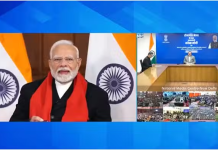New Delhi, December 16: The mother of a girl student, whose brutal gangrape sparked mass protests in the country, has said the #MeToo movement gives her hope things can change, as she marked the sixth anniversary of the fatal attack.
Asha Singh said the nationwide outrage her daughter’s ordeal provoked had helped create the conditions for Indian women to speak out about sexual misconduct, after a slew of accusations against high-profile men in recent months.
“This (#MeToo in India) is the result of that awareness which is helping women to come out with courage,” she told the Thomson Reuters Foundation in an interview.
“The winds of change are blowing, more women are empowering themselves. I feel hopeful when I see so many women speaking up.”
Singh’s daughter, a 23-year-old trainee physiotherapist, died after she was gang-raped on a moving bus, in a case that triggered global outrage and forced Indian authorities to tighten laws on sex crimes.
She said her daughter helped prompt national soul-searching about India’s treatment of women and brought discussions on their safety into people’s living rooms.
The #MeToo campaign found momentum in India in September, almost a year after it hit the US entertainment industry, when Bollywood actress Tanushree Dutta accused a veteran actor of sexually harassing her on a film set a decade earlier.
Since then, scores of women have levelled complaints of sexual misconduct against prominent journalists, film personalities, comedians, lawyers and executives.
“Men thought they could do whatever they want and get away with it. They thought they were untouchable, but look at how all of that is changing,” said Singh in her sparsely furnished apartment in a Delhi suburb.
“Little did they think that women would start speaking out, even after 10 or 15 years.”
Despite legal reforms there has been little improvement in women’s safety in India, which recorded nearly 40,000 rapes in 2016, the latest year for which data is available.
New Delhi alone registered 2,170 cases in 2016, an average of nearly six a day.
Singh said the figures would not be so high if India fixed its notoriously slow and creaking criminal justice system, which she blames for the fact her daughter’s attackers are still alive after they were convicted and sentenced to death.
“Today completes six years (of the attack), but even today the guilty are alive,” she said.
“This sends a wrong message to society. Today, little girls are being attacked because nobody fears the law.” (Thomson Reuters Foundation)
















































